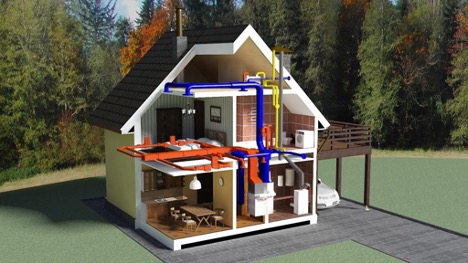Comparison of heating using different types of fuel: which fuel is the cheapest
Heating is one of the key issues in economic activity and everyday life. The choice of fuel source for heating depends on many factors. First of all, it is its cost, availability and environmental friendliness. Comparing heating with different types of fuel allows you to understand which option will be the most profitable and sustainable. Let's look at the main types of fuel used for heating and evaluate them according to various parameters.
Before selecting a specific heating fuel, local conditions and infrastructure must be taken into account. For example, gas is more often available in urban areas. Whereas in remote areas, preference is given to solid fuel or electricity.

The content of the article
The cheapest type of fuel
Determining the cheapest fuel type is not easy as it depends on many factors including regional prices, consumption and heating efficiency. Traditionally, natural gas and coal are among the most affordable options. Gas is a popular choice due to its efficiency and ease of use. At the same time, coal, although less convenient to use, can be economically profitable in areas where it is available at low prices.
What and how much will you have to pay for?
Comparing the cost of heating using different types of fuel allows us to more fully assess the economic benefits of their use. For example, gas heating usually costs less than electric heating. But it can be more expensive than heating with solid fuel in regions with low cost. However, it is important to consider not only the price of the fuel itself, but also the costs of installation and maintenance of equipment, as well as heating efficiency.
In Russia, where climatic conditions and the availability of different types of fuel, costs can vary significantly. The main factor that influences this is the region. Below are approximate heating costs for different fuel types:
- Gas heating:
- Initial costs for installing the system: 50,000 - 100,000 rubles.
- Monthly gas costs: 3,000 - 6,000 rubles.
- Electric heating:
- Initial installation costs: 20,000 - 50,000 rubles.
- Monthly electricity costs: 4,000 - 8,000 rubles.
- Heating with solid fuel (wood, coal):
- Initial costs for the purchase and installation of a stove/boiler: 30,000 - 70,000 rubles.
- Monthly fuel costs: 2,000 - 5,000 rubles.
- Heating with diesel fuel:
- Initial costs for installing the system: 50,000 - 80,000 rubles.
- Monthly expenses for diesel fuel are 5,000 - 10,000 rubles.
- Heating using pellets (biofuel):
- Initial costs for the purchase and installation of a pellet boiler: 80,000 - 150,000 rubles.
- Monthly costs for pellets: 3,000 - 6,000 rubles (depending on pellet prices and heat demand).
The cheapest and most environmentally friendly type of fuel
Recently, more and more attention has been paid to the environmental friendliness of energy sources.The cheapest and cleanest fuels are usually renewable sources such as solar energy or biofuels. Although the initial installation costs of such systems can be high, in the long term they provide significant savings and minimal environmental impact.
Among the main factors influencing the choice of fuel for heating are the following aspects:
- Regional availability. Depending on the region and locality, some types of fuel may not be available or their cost will be significantly higher.
- Economic efficiency. It is necessary to evaluate the ratio of the cost of fuel and the amount of heat received.
- Environmental sustainability. The importance of choosing environmentally friendly energy sources is growing, especially in the context of global climate change issues.

What is the cheapest fuel?
The question of which fuel is the cheapest depends on many factors, including individual heating needs and local conditions. For example, in some regions, the most economical option will be to use electricity, especially if it is produced from renewable energy sources. In other cases, it may be more profitable to use natural gas or even traditional fuels such as coal or wood.
The choice of fuel for heating is a complex decision that must take into account both economic and environmental aspects. While there is no one-size-fits-all option, it is important to strive for the best balance of cost, efficiency and sustainability when choosing your heating fuel source.





